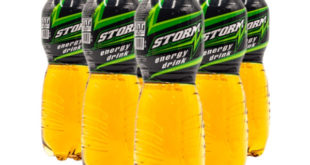
In a significant development, Ghana is set to manufacture anti-snake venom locally, marking a milestone in saving lives from snakebite-related fatalities. An essential step in this endeavor was the signing of a Memorandum of Understanding (MoU) between Atlantic Lifesciences, a Ghanaian company, and Vins Bioproducts, an Indian firm.
The arrival of a substantial quantity of Snake Venom Antiserum in Ghana is poised to make the nation the first in West Africa capable of producing and packaging anti-snake venom for both domestic use and export. This initiative aligns with the government’s goal to establish Ghana as a hub for vaccine manufacturing on the African continent.
Dhananjay Tripathi, the Chief Executive Officer of Atlantic Lifesciences, emphasized the World Health Organization’s recognition of snakebite as a neglected tropical disease, particularly affecting rural communities. His company, alongside Pharmanova, had previously played a crucial role in importing anti-snake venom on behalf of the government. In 2017, they initiated the move towards local vaccine production, with a focus on anti-snake serum.
Siddarth Daga, the Executive Director of Vins Bioproducts Limited, expressed excitement about the collaboration with Atlantic Lifesciences to produce anti-snake venom in Ghana. This partnership is poised to position Ghana as a leading producer of Serums in Africa.
Ghana’s Minister of Health, Mr. Kwaku Agyeman Manu, highlighted the vulnerabilities exposed by the COVID-19 pandemic and the need for the country to reduce its reliance on imported vaccines and serums. As the nation moves away from the Global Alliance for Vaccines Initiative, there is a strong emphasis on local vaccine production to enhance healthcare delivery.
Prof. William Ampofo, Head of the National Vaccine Institute, reiterated the institute’s commitment to supporting the private sector in establishing vaccine manufacturing facilities in the country.
According to the World Health Organization Country Representative for Ghana, Professor Francis Kasolo, an average of 9,600 snakebites were recorded annually from 2015 to 2019 in Ghana. The signing of the MoU signifies a collaborative effort to improve the availability and accessibility of safe, effective, and affordable anti-snake venom, essential for reducing mortality associated with snakebites.
Dr. Nsiah Asare, the Presidential Advisor on Health, emphasized that the local production of anti-snake venom would significantly enhance public health in the country. Delese Mimi Darko, CEO of the Food and Drugs Authority (FDA), confirmed her organization’s approval for the production of anti-snake venom.
This groundbreaking initiative is a vital step towards reducing the threat of snakebites and enhancing healthcare in Ghana.
 GhArticles.com Every News in Detail
GhArticles.com Every News in Detail



